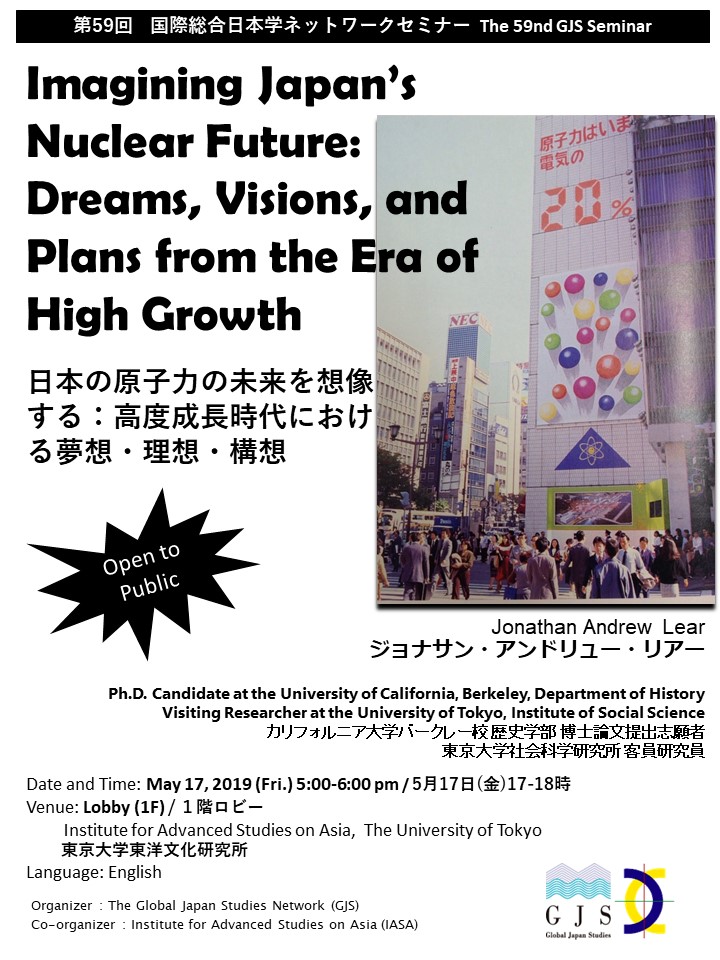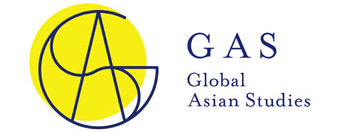第59回GJSセミナー日本の原子力の未来を想像する:高度成長時代における夢想・理想・構想
| 日時: | 2019年5月17日(金)17:00~18:00 |
|---|---|
| 会場: | 東京大学東洋文化研究所 ロビー(1階) |
| 発表者: | ジョナサン・アンドリュー・リアー(カリフォルニア大学バークレー校歴史学部 博士論文提出志願者、東京大学社会科学研究所 客員研究員、フルブライト・ジャパン 大学院研究員) |
| 使用言語: | 英語 |

発表概要: Upon its inception in the early 1950s, Japan’s nuclear project was originally defined by a form of temporal tension: between the drive to catch up to the “advanced countries” on the one hand and long-standing concerns regarding Japan’s energy future on the other. While the development of nuclear power was in part a utopian quest to overcome this tension, the decades-long process of development itself began to reveal the truth that nuclear energy was likely to remain but one among many forms of energy production, and a controversial one at that. The nuclear world that Japan now inhabits—a largely stagnant one, defined by the ubiquity of its now halted light-water reactors—is no doubt much different than the buoyant future originally conceived by its postwar thinkers and planners. These actors, who self-consciously referred to themselves as “dreamers” and their project as “the dream of atomic power,” believed that the light-water reactor was merely a single stage, or pathway of development along the way to a much more thoroughly nuclear future. Technologies like fast-breeder reactors, high-temperature gas-cooled reactors, floating nuclear plants, and of course fusion power tenaciously sat on the nuclear horizon, along with the promise of continued prosperity in whatever age came next. The problem was that the horizon tended to recede as one approached it. My talk will focus on this now “past future”—on the dreams, thought experiments, and prognostications, as well as the more concrete long-range plans that constituted this future.
当日の様子
共催:東京大学東洋文化研究所(IASA)
問い合わせ:gjs[at]ioc.u-tokyo.ac.jp



